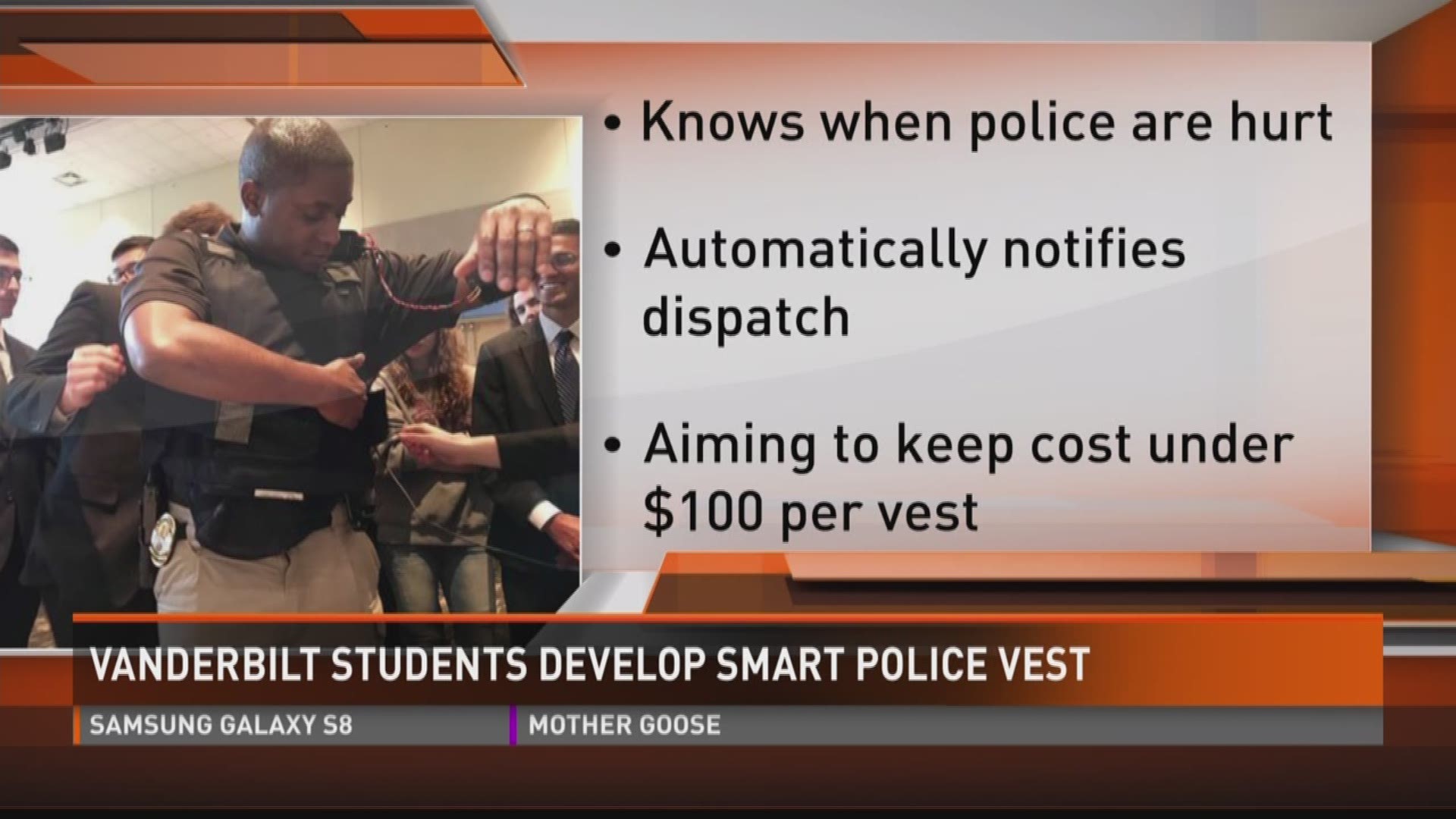Vanderbilt University engineering students have developed a smart ballistics vest that knows when an officer is in trouble and can automatically call for backup.
The vest monitors the wearer's heartbeat, breathing and knows when either are too fast or too slow. It calls for backup when it senses an officer has been shot and notifies dispatch when the officer has fallen on the ground. It even knows when the officer is bleeding by detecting the sugar in human blood as it trickles over one of the sensors.
The invention was featured along with 70 other projects meant to address real-life design challenges at Design Day Monday at Vanderbilt University.
Apart from having the opportunity to practice the engineering skills they've learned in college, students can also win awards as judges evaluate each project and decide by major which body of work is the best, according to Assistant Dean for Design Thomas Withrow.
Smart ballistics vests, officially dubbed HERMES (Health Evaluation and Real-time Monitoring-based Emergency Signaling) could save precious moments in life or death situations, its creators say.
Former NYPD Officer Jim Shepherd said he got the idea for the vests after he helped pull his fellow officers from wreckage of 9/11. The vests, inscribed with identifying information, were one of the few items that remained intact after the planes crashed and the Twin Towers collapsed, Shepherd said.
They were used to identify those killed in action.
"I thought about how can we get that vest to do something more?" Shepherd said. "And these kids did a tremendous job."
The team of Vanderbilt seniors includes Vivek Shah, Zachary St. Clair, Kathryn Snyder, Matthew Rogers, Nicole Steiner, Alexander Boyer and Paul Hark.
They were advised by the four people who make up GPS-911, LLC — Shepherd, Erin Raccah, Austin Martin and Arlie Haddix.
Raccah said GPS-911 is aiming to keep the cost to police departments under $100 for each vest. There will also be an additional cost of $5 per officer per month for a subscription to the web application.
International Airport Police Officer Lori Hodapp has also been helping to advise the students on the project. She flew to Nashville from the Minneapolis/St. Paul International Airport where she works in counter-terrorism to try to vest out. After putting on the vest, Hodapp laid on the ground. Almost immediately, the vest sent out notifications that indicated the officer's orientation was off.
"The vest is a daily thing for me," she said. "I am so excited for this vest. It's the next step in officer safety."
While hundreds milled around the Student Life Center ballroom, the smart vest was a clear favorite.
Some other projects included a redesigned football helmet that limits mild brain injuries, a custom apparatus designed for aerial dance artists, and a 150-foot pedestrian bridge for a town in Honduras that will save villagers hours of travel to clinics and schools. The bridge is scheduled for construction in August.
Each of the inventions were developed for class credit, Withrow said, and can help students get jobs.
Reach Ariana Sawyer at asawyer@tennessean.com or on Twitter @a_maia_sawyer

